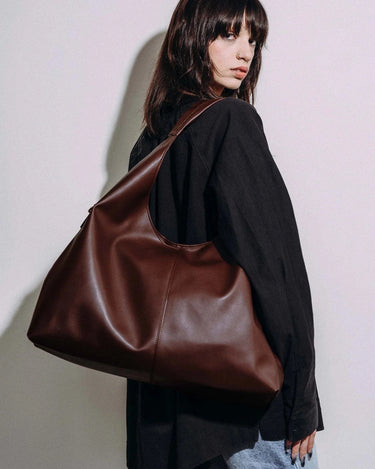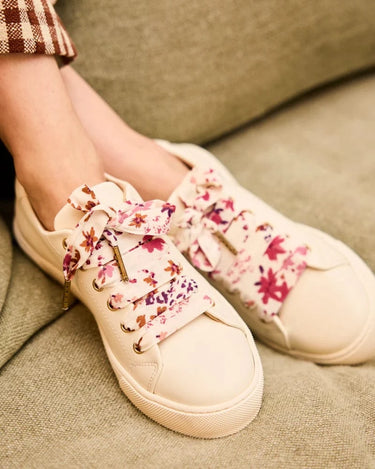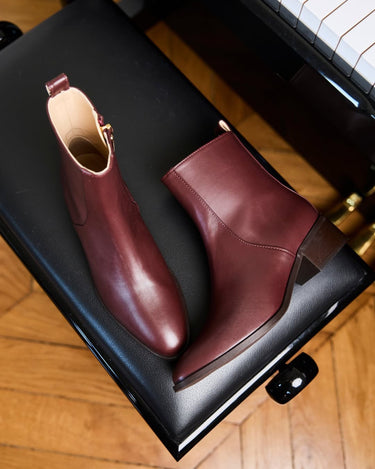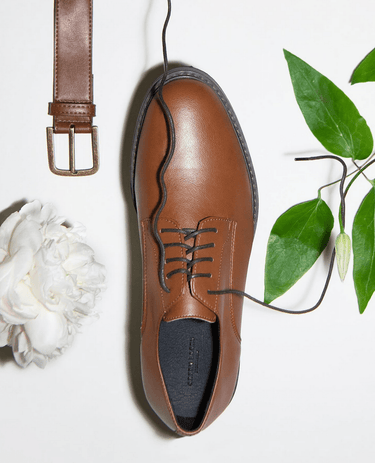Behind the Brand: NAE
Back in 2008, the vegan fashion scene sure didn't look the same as it does today. Sure, there were a few options – excruciatingly few and notoriously difficult to find – but their appeal often stopped at ethics. Brands were yet to learn the importance of the style factor, so many of the designs available lacked in that aesthetic factor which, let's face it, is crucial to why we buy fashion. This is when NAE, name meaning No Animal Exploitation, stepped on the scene – quite literally, as their offering was based around footwear, later to expand to bags and other accessories.
By Sascha Camilli: writer, speaker, activist, and vegan fashion expert.
There was not much to indicate that husband-and-wife team Alex and Paula Pèrez would go into shoemaking. “My studies and professional background have nothing to do with the footwear industry,” muses Paula. “I have a degree in Applied Mathematics with a master’s in Information Management and Business Intelligence. My professional background has always been connected to the analytical part and information management in the telecommunications business.”

It was an entrepreneurial drive that led her and Alex to create NAE. “Testing myself as an entrepreneur was something I really wanted to do,” she recalls. Another reason was finding a gap in the market: “NAE stemmed from the lack of vegan shoes options available to me at the time. I realised that if I felt this way, I was not alone. I wanted to cater to people who felt the same as me.”
As she progressed in her journey of discovering sustainable fashion, Paula grew impatient to share with the world: “Through years of experience, we came to the realisation that the care for animal life and the sustainability of the planet was largely abandoned by the industry. I wanted people to acknowledge the problems within the fashion industry that were being ignored. I wanted to be a part of a community actively working to create sustainable and eco-friendly fashion.”

The team's first steps did not come without hesitation. “Starting anything new can be intimidating. We had to contend with the challenges of building a website from scratch, understanding international retail markets, and determining the cost of production – how viable was it to be a solely vegan company?” Ultimately, ethics won out: “We felt it was our responsibility to make a change to a very broken system and contribute as much as we could to help the world become a more sustainable, animal-friendly, and free place to be.”
Paula remembers struggling with material choice at first. As a new vegan brand, operating in a small niche, quality remained a priority – but it brought its own set of hurdles. “Finding alternative materials to animal leather that had the quality we needed was very difficult. Fortunately, many more sustainable alternatives started to emerge, and this was very important for the industry and above all for the planet.” NAE also spent time and effort on convincing potential collaboration partners of their way of doing things: “The factories were not used to working with this kind of material. Therefore they saw us as people with rather strange ideas!”
Suppliers did, however, adapt, and today NAE is proud to offer vegan shoes that are locally made in Portugal. Their clientele is, unsurprisingly, mainly made up of vegans and consciously minded consumers. “We design essentially for a vegan audience, a client who is very concerned with the planet's sustainability. Our main customers are those who completely identify with the philosophy of the company and therefore want to buy products that are somehow aligned with its principles.”

In terms of style, NAE combines timeless with contemporary: “Our customers love a classic yet modern look – a combination of versatility and simplicity. We believe this makes our designs diverse in terms of demographics: our products are suitable for business attire as well as for a casual day out.”
When asked what her typical day looks like, Paula's response is similar to that of many entrepreneurs: no two days are the same. “It depends on the time of year – the development and launch of collections is a very important time. But usually, I have a weekly update meeting with the team where we all share, discuss, and plan the upcoming week. During the week I dedicate time to our two physical shops in Lisbon and the development of the business in general.” She may be an ethical-fashion maven these days, but Paula still makes good use of her business mind: “Due to my professional background, I am a bit obsessed with numbers and company performance, so I spend some time every day analysing reports.” Hey, if it keeps those vegan shoes coming, we're on board.
By Sascha Camilli
About Sascha
Sascha Camilli is a vegan fashion writer, speaker and activist. Her book Vegan Style is out now on Murdoch Books. For more about Sascha, you can read our interview with her. You can also follow her on Instagram, Twitter and LinkedIn.
All images by NAE
For more great content like this in your inbox, sign up to our newsletter, and save 10% off your next purchase, plus great savings throughout the year.
Related Articles


















































































































